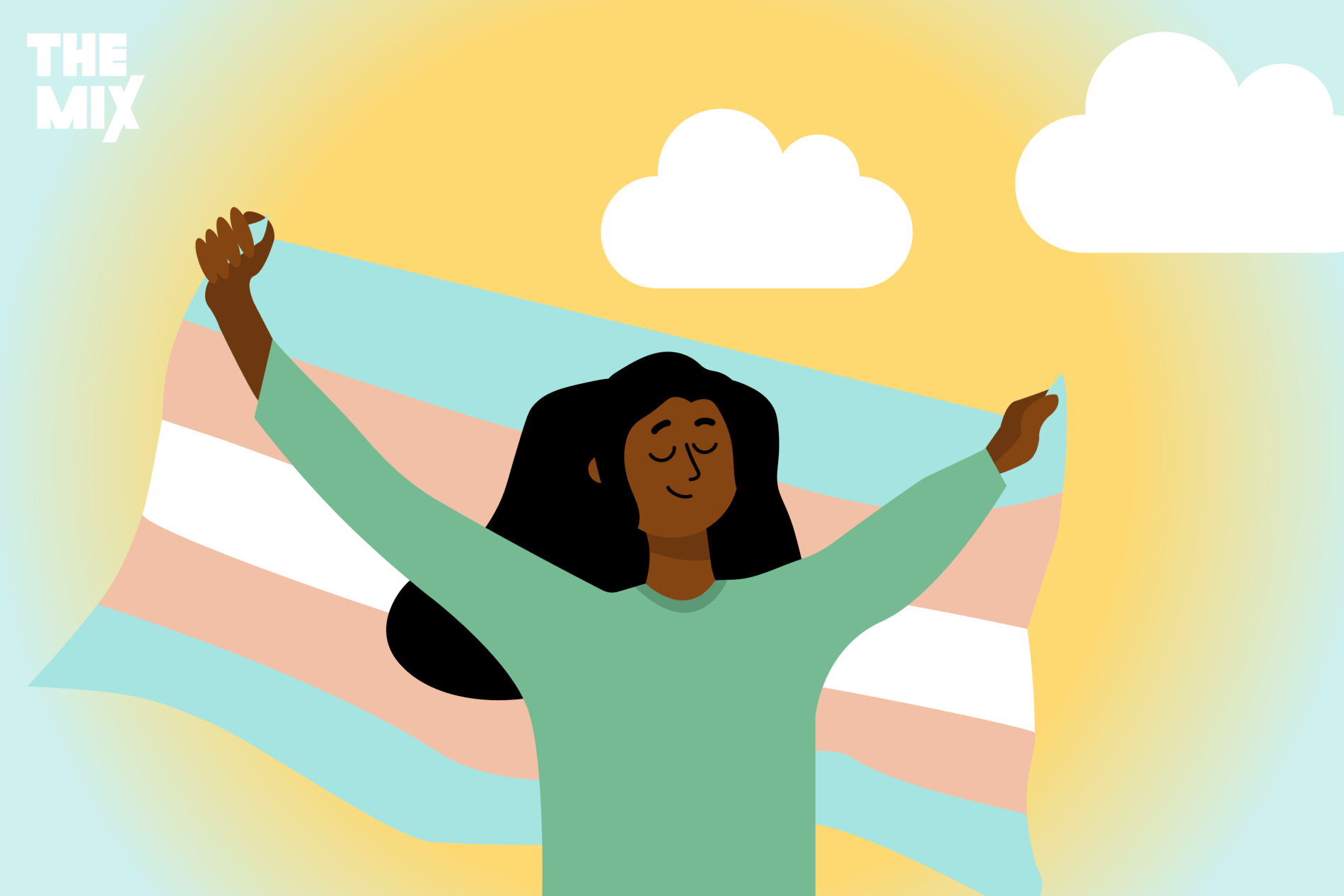Navigating loneliness on the trans journey
The world can be a lonely place sometimes, and it can feel even lonelier when you’re facing a huge transition in your life. Whether that’s moving schools, switching jobs or becoming the person you’re meant to be. For the trans community, transition is a part of life, but loneliness doesn’t have to be. The Mix looks at the ways we can navigate, address and ultimately combat loneliness on your trans journey.

Loneliness is universal
First things first, if you’re feeling lonely then it’s important to remember that you’re not alone. Many of us experience feelings of loneliness at some point in our lives but the good news is there are ways to deal with it.
Almost 50% of people in the UK experienced loneliness in 2022, according to The Campaign To End Loneliness, with 8% of those between 16-25 years old.
If you’ve been experiencing loneliness for a long time, and it’s affecting your day-to-day life, it’s important (and OK) to seek professional support. Loneliness is a universal feeling and with the right support, it can be overcome. To find out more about what support is available, scroll down for our list of organisations and resources at the bottom of this article.
Why could trans people be more prone to loneliness?
There are many reasons why members of the trans community could feel lonelier, and all of those reasons are valid. It could include (but not limited to):
- Feeling rejected
- Discrimination and stigma
- Mental health challenges
- Lack of support available
Remember though, everyone’s unique and will have their own reasons for feeling lonely. Alex, a trans woman based in London, shared her unique experiences of loneliness with The Mix, and how it’s connected to her trans journey:
‘I’m lucky to have a close group of friends who I can talk to about my problems but they’re not from the trans community. Sometimes I feel like they don’t understand me, as much as they try to. I’m currently on HRT (hormone replacement therapy) and this affects my mood. There are days where I’ll wake up feeling sad and it would be great to have people in my life who understand the journey I’m on.’
How do I manage loneliness as a transgender person?
Sometimes the biggest change starts from within. If you’re experiencing loneliness as a trans person then it’s important to go easy on yourself. Try practicing self-care and look after your mind through this difficult period. Some self-care activities could include:
- Journaling (write any thoughts or feelings that come to mind)
- Exercise (it doesn’t have to be an ultra marathon! A walk in the local park will do)
- Read (books, magazines – maybe not too much social media!)
- Watch your favourite movie or TV show
If you’re ready to make some new friends and share your journey with similar people, there are plenty of support groups or communities out there waiting for you to get involved in. The MeetUp app is a great place to start. Simply download the app, search for trans events/communities and look at what’s on offer in your area. We also recommend the following organisations to find support groups near you:
https://www.beaumontsociety.org.uk/
If loneliness has affected your mental health, and you’ve been feeling low and/or anxious for some time, it might be worth considering more professional support. Talk to your local GP for more information about possible treatments. The Mix also offers free telephone and webchat counselling and our crisis messenger is available 24/7.
I’m not transgender but how can I help this community feel less lonely?
The journey that trans people take can be long, difficult and incredibly isolating. It’s important to always be considerate of how they might be feeling no matter where they are along that journey.
Take the time to check in with trans friends or family members. By taking a genuine interest in their lives can help them overcome their feelings of loneliness and feel validated. You’ll probably learn a thing or two along the way too!
If you know a trans person who is currently undergoing their transition, don’t automatically assume that they don’t want to do the things they used to do. They might still want to be invited to parties, events, or even just a walk in the park.
If you don’t know a trans person, it’s still your responsibility to contribute towards an open and inclusive environment for them. Transphobia is unfortunately still an ongoing issue that the trans community deal with. By working as a team to learn about trans lives, issues and how to help them, we can create more acceptance and compassion for this community to thrive. To find out more, see our article ‘How to combat transphobia’.
Next Steps
- Chat about this subject on our Discussion Boards.
By
Updated on 03-Sep-2024
Sorry, comments closed
No featured article














